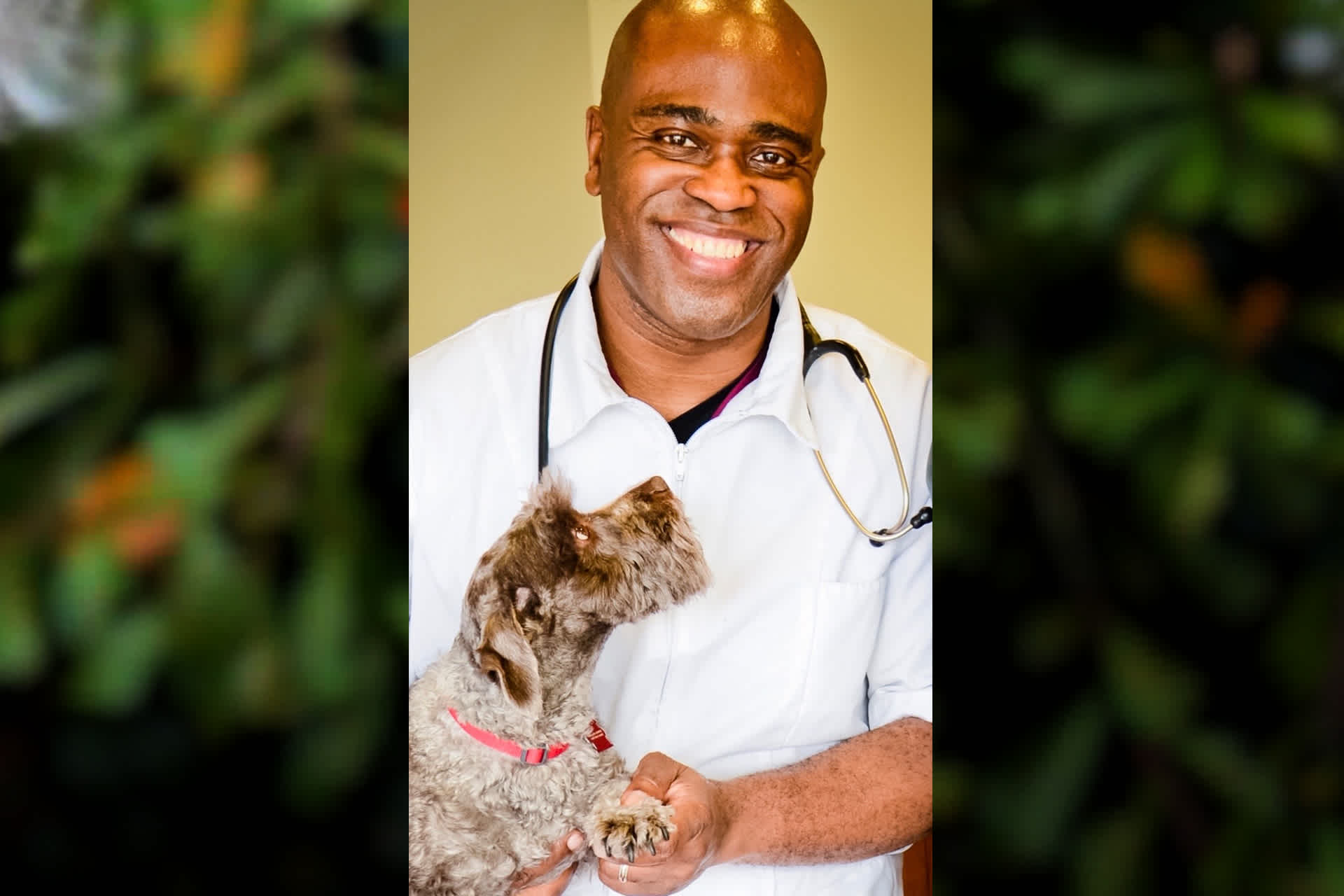The Pet Doctor

Arvid Edward never heard of veterinarians until he was in ninth grade. When his German shepherd, Master, was hit by a car, Edward’s father took the dog to an animal hospital. A vet saved Master’s life. “That's when my interest was piqued,” Edward recalls.
Edward went to veterinarian school at Tuskegee University, in Alabama. He’s been in professional practice for 25 years. He’s now the medical director at the North Springs Animal Clinic, in Sandy Springs, Georgia. Your Hot Job asked him what advice he’d give young people who hope to join the veterinary profession. Here are the key takeaways.
Take an interest in science.
Like many high school students, Edward took biology. When he found out there was a course in zoology, he immediately signed up. Each animal has its own anatomy, its own habitat, its own way of life, he says. For people who love science, that diversity can be fascinating. Many vets work with all kinds of animals.
Do your homework.
It is important to maintain good grades in high school and in college, so you can earn scholarships. These will help pay for your education. When you’re selecting a college, look for schools that offer classes in pre-veterinary science and animal science. You will need these credits when you apply to veterinary school.
Expect veterinary school to be challenging.
At the best veterinary schools, there’s a lot of hands-on work. You’ll dissect cadavers and see blood vessels, nerves, muscles, organs, and tissue. When you get a job, you’ll be expected to apply this knowledge with few or no mistakes. “You have to learn this with some degree of perfection,” Edward says. And be prepared to dedicate yourself to your studies. In veterinary school, “you have no time,” he says. “You’re studying all day, every day.”
People hold veterinarians to a high standard.
When people bring in a beloved pet, they expect a veterinarian to be perfect, Edward says. There’s little room for mistakes. “You have to be confident and stand firm in your conviction when you tell clients, ‘This is what I think, and this is the avenue I want to take’ as far as treatment goes.” Sometimes, a client will challenge you, but that’s okay. “People are very protective when it comes to their pets.”
Be prepared to work.
A typical workday for Edward is 8 a.m. to 5 p.m. He’s a surgeon, and works on every kind of animal. “Horses, cows, reptiles, and birds. I worked on a tooth abscess on a rabbit not long ago,” Edward says. “I pretty much see whatever walks in the door.”
But veterinarians can choose which animals they want to see, and what kind of treatment they offer. Some do not do surgery. Others might not treat exotic animals, just dogs and cats.
Take care of yourself.
Being a veterinarian can be stressful. Many of the pets you treat will get better. But not all of them. “You cannot bring emotion to work,” Edward says. “That doesn’t mean you don’t care. But emotion can cloud your judgment on how you treat a patient. And it can affect you internally. Being a veterinarian takes a lot of discipline and determination. All you can do is go out there and do the best you can every day. Try not to take it home with you.”
You may not know:
There are a lot of different jobs for veterinarians.
Not all veterinarians work in a clinic. There are many other opportunities. For example, you can do research for the United States Department of Agriculture. You can work in public health, as a meat inspector, or as an epidemiologist (an expert on the spread of disease) for the Centers for Disease Control and Prevention. You might work in a lab, developing animal medicines, or teach at a veterinary school. Even the United States military has positions for veterinarians. “There are so many options,” Edward says.
What you can do now.
“It all comes down to education,” Edward says. He suggests:
• Reading books on veterinary science and pet safety. • Asking a veterinarian to speak at your school. • Volunteering at an animal clinic and following a veterinarian for a day.

